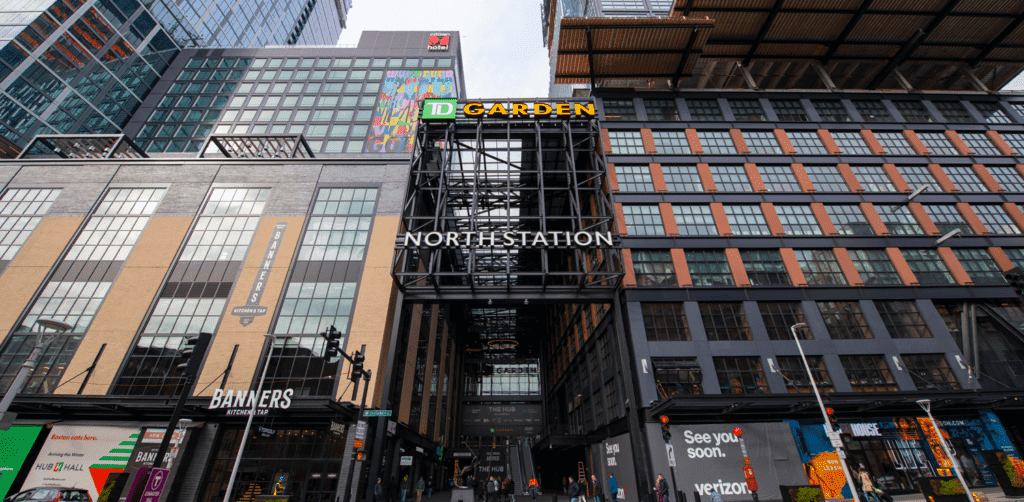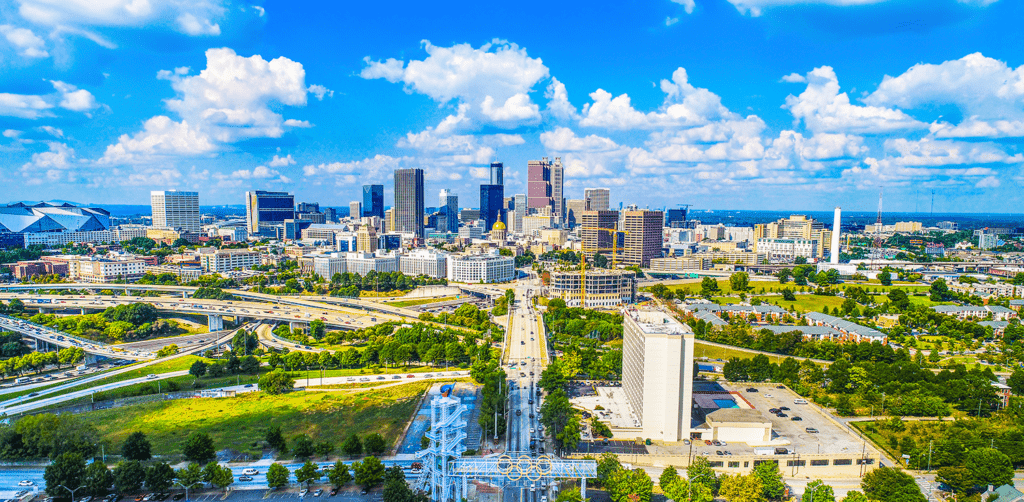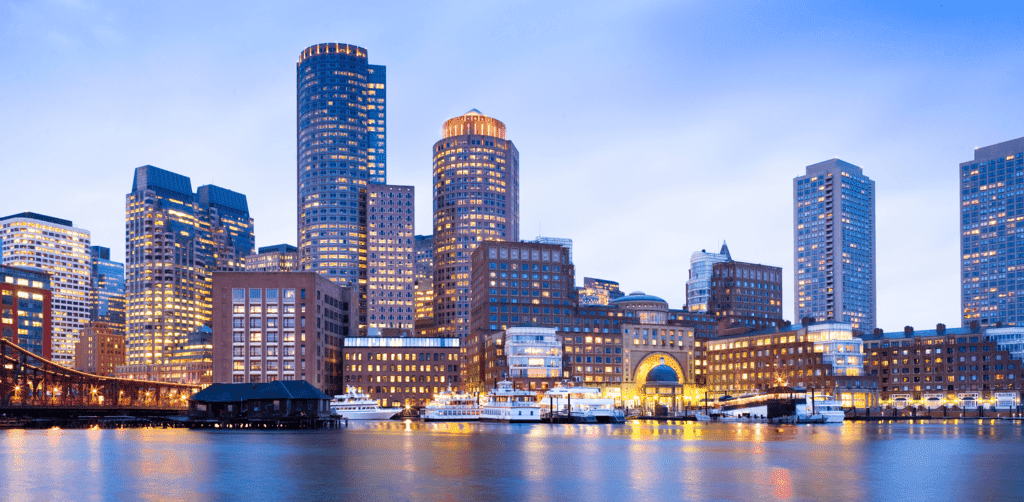Boston sports evoke something different within all of us – memories of your first game, a historic playoff series, or just the general benefit of residing in a region where title trophies are fairly common. As three of New England’s biggest teams make their homes within the city of Boston, their presence has had a profound impact on the development of the city and which retailers have established themselves within the immediate vicinity of the venues.
We attended the Bisnow Boston Sports, Entertainment, and Retail event at the New Balance Track in Boston Landing last month, where we discussed how Boston’s real estate had been shaped and influenced by these franchises, their ownership groups, and fans for many decades.
History meets progress in Boston’s Fenway Neighborhood.
Fenway Park is the oldest baseball stadium in the nation, and Fenway Sports Group has worked hard the past twenty years to keep the ballpark open and operating. The park is meticulously maintained even as new projects are completed, like the new Truly Terrace behind the Bleachers, to enhance the fan experience. Fenway has the benefit of not only its baseball legacy but of the developments that continue to make Fenway a great place to live, work, and be entertained.
Samuels & Associates has been a big driver behind the development, and they have established a true mix of hotels, multifamily, entertainment, and retail in the neighborhood. The Red Sox and the Fenway neighborhood have a symbiotic relationship – the neighborhood benefits from traffic on game and concert days, and the team enjoys a loyal and robust fan base, as people enjoy all of the neighborhood’s offerings.
Strong tenants bring fans to the area for more than game time.
Similarly to Fenway, the development of the North Station area around TD Garden has turned that area into a place where fans can grab dinner and a drink before a Bruins or Celtics game at newly open Hub Hall or book an hour at the Top Golf Swing Suites at Banners. Boston is on a short list of U.S. cities that can boast 3 major sports teams competing within city limits.
From a retail perspective, this reliant stream of fans creates an entire subset of considerations when landlords tenant their properties. Understanding these needs, as well as the seasonality of sports schedules, are important considerations for the Boston landlord: How do we make our property attractive so that a fan comes to the neighborhood before the game and stays afterward? Which tenants provide a draw even on non-game days?
Boston teams work with developers and landlords to strengthen the city.
With New Balance’s development of Boston Landing in Allston, both the Bruins and Celtics have established practice facilities less than five miles from TD Garden. These facilities increase the vitality of Boston, Allston, and the Boston Landing development. The Auberbach Center (Celtics) and Warrior Ice Arena (Bruins), as well as the recently open Roadrunner music venue, have positively impacted the traffic and development of this former industrial neighborhood of Allston.
The confluence of Boston sports, entertainment, and retail has built a city and region that works for and with the demands of sports and music fans, as well as those of us who consider Boston home. Ownership groups of and around these important stages – both sport and entertainment – understand the need to appropriately tenant the retail spaces as fan and consumer patterns evolve.




